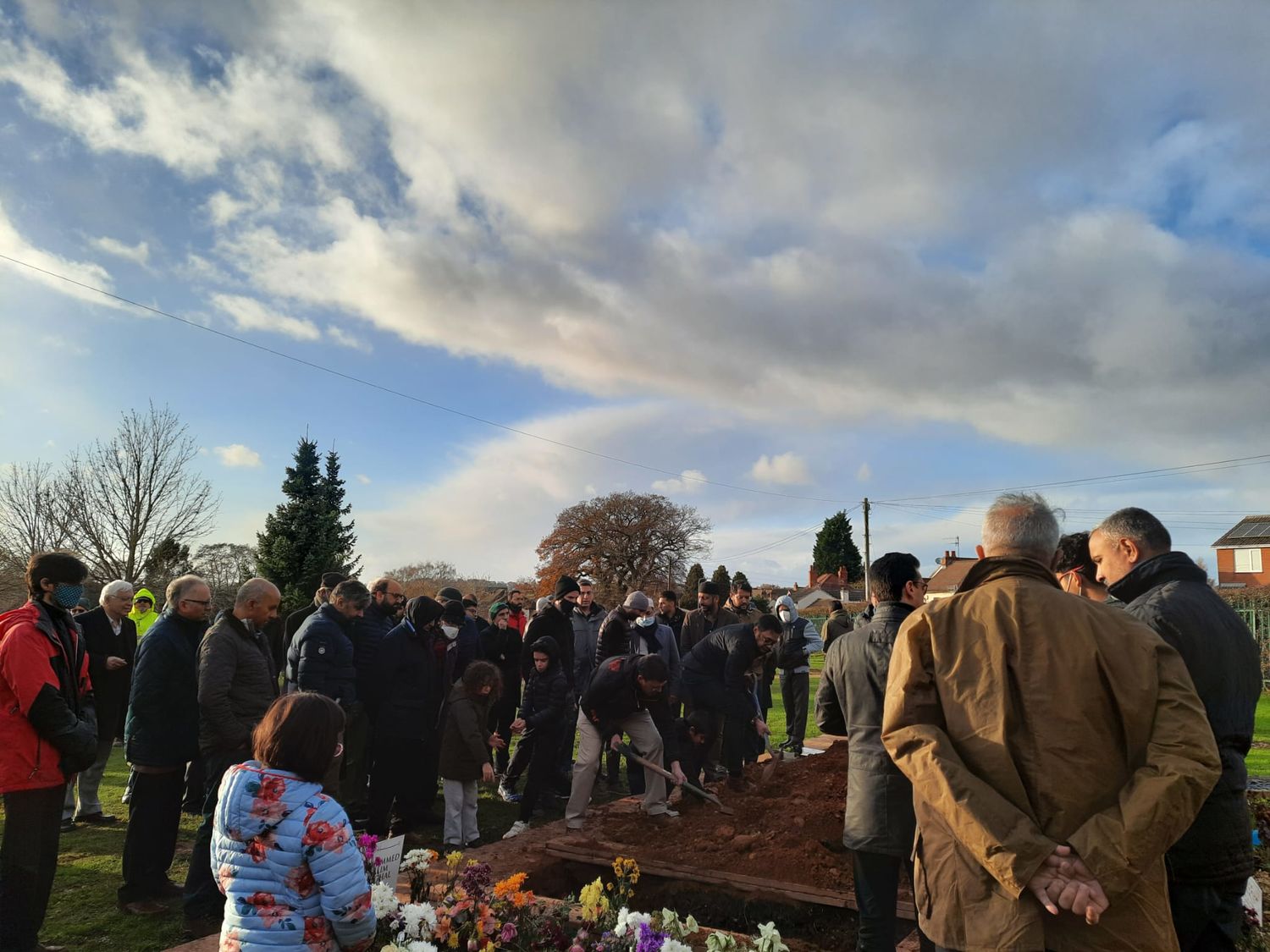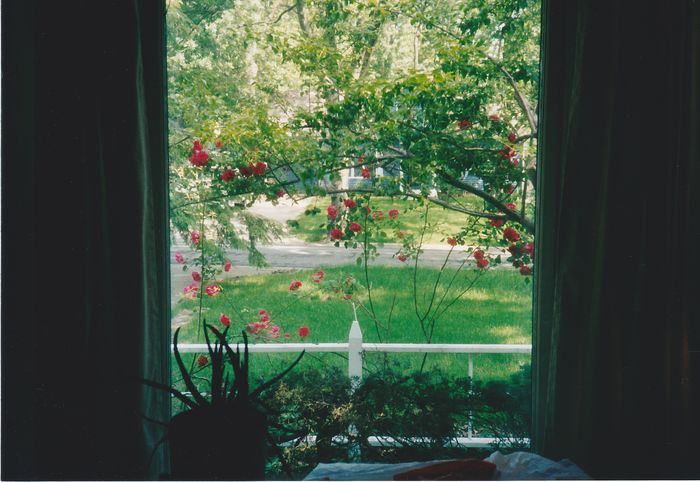Content note: this article contains detailed discussions of grief
“Have you ever lost somebody before?” he says to me. My nine-year-old cousin, with crossed legs and gel in his hair, has a solemn look on his face as he talks to me about grief. Little Sofia, otherwise known as Choppy, is less conscious of this weight when she asks me “why is people dead so important?”
Most of the grandchildren are already conscious of the euphemisms we use to cloak our grief, wrapping the starkness of death in palatability. `’Dadabba is dead” announces seven-year-old Hasan, before correcting himself. “No, passed away. You can’t say dead”.
But our grandfather, our Dadabba, was dead. And, on a cold November evening, it seemed like the objects in the house hadn’t yet learnt that he was gone. The books on the shelves. A red shoehorn beside the bed. Sugar tablets in the cupboard. His collection of baseball caps hanging up on hooks behind the door.
“Placing the earth is not just a symbolic gesture, but an active and continuous communal effort”
Islamic burials are arranged without delay. The body is washed and scented with rose water or musk, then wrapped in swathes of simple cloth, concealing frailty, sickness and imperfection. A therapeutic experience, direct participation in the rites of death provides a sense of materiality and closure. It is a final physical interaction with a loved one, one last act of service.
Inside the mosque, Dadabba’s body is shrouded in white cotton. My grandmother tells him that his dari, his white beard, looks good. That he can eat as much mithai as he wants, and that she won’t scold him for it. For the things she is sorry for. The arrival of the little ones breathes much-needed life into a sombre room. As grown-ups weep silently with the Quran in their laps, a rabble of eager hands and little legs crowd around. “What’s the coffin made of?”, “why’s his mouth open?”, “can I touch him?”, “why’s he cold?”
Our family is stoic, except for Choppy, who is still doing pirouettes. The funeral prayer will begin shortly. With one final look, my father folds the white shroud over Dadabba’s face and the lid of the coffin slides shut. With raised hands, he begins to supplicate out loud:
“O Allah, forgive and have mercy upon him. Grant him safety and pardon him. Welcome him and expand his grave. Purify him of sin as a white robe is purified of dirt. Wash him with water, with ice, with snow…”
We buried Dadabba on a Friday, just before the sun set on a freezing November afternoon. There is blessing in the digging of the grave: family members and close friends are directly involved in the mechanics of both washing and burying loved ones. Placing the earth is not just a symbolic gesture, but an active and continuous communal effort, one which requires toiling, perspiring, and mounds of dirt. Those who turn up in shiny new shoes are ridiculed.
When I struggle to gather a handful of dirt, the soil clumping heavily in my hands, an uncle notices and silently hands me a shovel. Even the toddler twins, two mops of curly hair tottering by the graveside, throw tiny palmfuls of earth into it. There is not a black suit in sight: instead, the men turn up in jeans and shoes that they can get caked with soil. They pour their grief into the earth, armed with large shovels. My dad says that the mark of a good funeral is muddy trousers. Nothing is polished or prepared; there are no speeches or candles, only sweat on brows and soil under fingernails. Rather than devolving the job to professionals, these physical rituals mean that our family is intimately involved in the process of saying goodbye to a loved one. We carry our own bodies, we wash them, we bury them. We remember him in death as we were with him in life, saying our goodbyes in plain clothes and muddy shoes. Eventually when the body is lowered into the grave, that visceral moment is inexplicably comforting, a reminder that we’ll join him shortly.
That night, it howled with wind. My grandmother worried that her husband would be cold. As Dadi took down bits of paper from the kitchen noticeboard, the mundane reminders of a life lived, she remarked on its newfound starkness. “Itna khali hogeya, Irfan”. It’s so empty, Irfan. The word khali hung in the air.
“We believe that death is temporary separation, a veil between this life and the next”
But the next morning, it snowed. Winter sunlight glinted off the ground, cracking through layers of grey cloud. The back garden was covered in white. Five-year-old Choppy looked out the window and observed: “Maybe that’s Dadabba’s beard”.
100 miles away from Dadabba’s grave, I find myself in Mill Road Cemetery. Now it is May and the graveyard is overflowing with bluebells and white elderflower. Ivy grows over stone gravestones and wind roars through the trees. The cemetery is thrumming with life, and I shake off various insects seeking to make their presence known. The crooning of the woodpigeons reminds me of my grandfather’s house in summer. Sparrows chirp and blackbirds whistle, while plump little robins hop between tombstones: their voices layer on top of each other until the air is thick with birdsong. I remember that the Quran describes paradise as a garden.
Some people say faith is a crutch to alleviate terrifying realities, or a cushion to soften the blow of grief. But real fear is the kind that cloaks itself in euphemisms, that lacks the language to deal with death. It is the fear of the physical corpse, and the paralysing inability to accept our temporality. It is the inability to remember death without horror. Like bodies hidden behind mortuary doors, a post-religious world often conceals death from the public eye. It discusses the dead in hushed tones, with awkward but sympathetic platitudes, but then fails to know how to proceed. It recoils at the corpse and the blood and the soil and regards death as distasteful. Perhaps it sounds unseemly to some, but as we unrolled sheets of white paper in the dining hall, wrapped and sellotaped them around tables, we joked. Dadabba would have done the same. We busied our hands and our tongues. We laughed.
Faith lets us grieve in a different way: we lose the people we love, but we believe that death is temporary separation, a veil between this life and the next. It accepts and acknowledges painful emotions, but also inculcates resilience. We continue with sabr jameel, beautiful patience - an active, living patience, one of strength and dignity. We are not inconsolable. We are not afraid, nor will we grieve.
So I sit in the cemetery, and listen to the birds.


